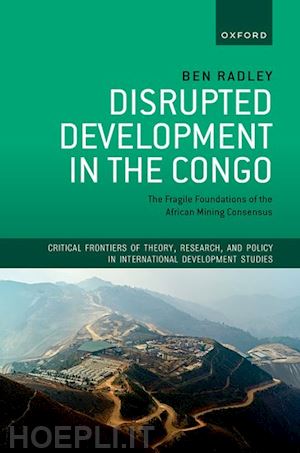Since the turn of the century, low-income African countries have undergone a process of mining industrialization led by transnational corporations. The process has been sustained by an African Mining Consensus uniting international financial institutions, African governments, development agencies, and various strands of the academic literature. The Consensus position is that mining industrialization can drive transformative processes of social and economic development in low-income African settings. For this, state-owned enterprises and local forms of labour-intensive mining are deemed unsuitable. The former is characterized as corrupt and mismanaged, and the latter as an inefficient, subsistence activity with links to conflict financing. The Consensus holds, instead, that mining industrialization should be led by the superior expertise and efficiency of transnational corporations. Disrupted Development in the Congo reveals the fragile foundations on which this Consensus rests. Through an in-depth case study of mining in the Democratic Republic of the Congo, Ben Radley details how foreign corporations have been prone to mismanagement, inefficiencies, and rent-seeking, and implicated in fuelling conflict and violence. He also documents how structural impediments to the transformative effects of mining industrialization in low-income African countries occur irrespective of ownership and management structures. Based on the findings presented, Radley urges a move away from the market-led logics underpinning the Consensus. In the mining sector itself, he argues that efforts to mechanize labour-intensive forms of local mining better meet the needs of low-income African economies for rising productivity, labour absorption, and the domestic retention of the value generated by productive activity than the currently dominant but disruptive foreign corporate-led model. Part of this title is published open access. This part is made available under a Creative Commons Attribution-Non Commercial-No Derivatives 4.0 International licence. It is available to read and download as a PDF on the Oxford Academic platform.












